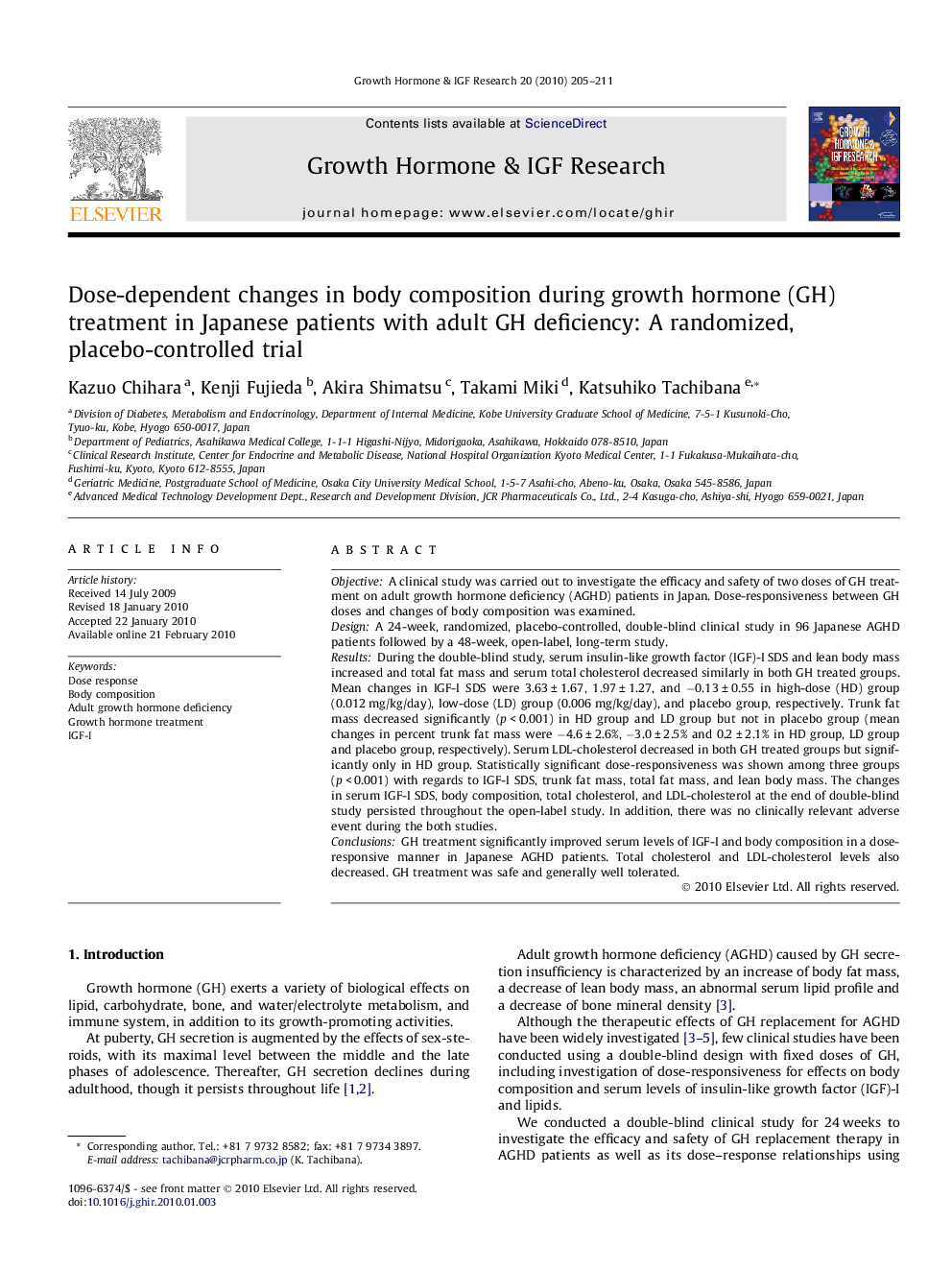| Article ID | Journal | Published Year | Pages | File Type |
|---|---|---|---|---|
| 2803068 | Growth Hormone & IGF Research | 2010 | 7 Pages |
ObjectiveA clinical study was carried out to investigate the efficacy and safety of two doses of GH treatment on adult growth hormone deficiency (AGHD) patients in Japan. Dose-responsiveness between GH doses and changes of body composition was examined.DesignA 24-week, randomized, placebo-controlled, double-blind clinical study in 96 Japanese AGHD patients followed by a 48-week, open-label, long-term study.ResultsDuring the double-blind study, serum insulin-like growth factor (IGF)-I SDS and lean body mass increased and total fat mass and serum total cholesterol decreased similarly in both GH treated groups. Mean changes in IGF-I SDS were 3.63 ± 1.67, 1.97 ± 1.27, and −0.13 ± 0.55 in high-dose (HD) group (0.012 mg/kg/day), low-dose (LD) group (0.006 mg/kg/day), and placebo group, respectively. Trunk fat mass decreased significantly (p < 0.001) in HD group and LD group but not in placebo group (mean changes in percent trunk fat mass were −4.6 ± 2.6%, −3.0 ± 2.5% and 0.2 ± 2.1% in HD group, LD group and placebo group, respectively). Serum LDL-cholesterol decreased in both GH treated groups but significantly only in HD group. Statistically significant dose-responsiveness was shown among three groups (p < 0.001) with regards to IGF-I SDS, trunk fat mass, total fat mass, and lean body mass. The changes in serum IGF-I SDS, body composition, total cholesterol, and LDL-cholesterol at the end of double-blind study persisted throughout the open-label study. In addition, there was no clinically relevant adverse event during the both studies.ConclusionsGH treatment significantly improved serum levels of IGF-I and body composition in a dose-responsive manner in Japanese AGHD patients. Total cholesterol and LDL-cholesterol levels also decreased. GH treatment was safe and generally well tolerated.
